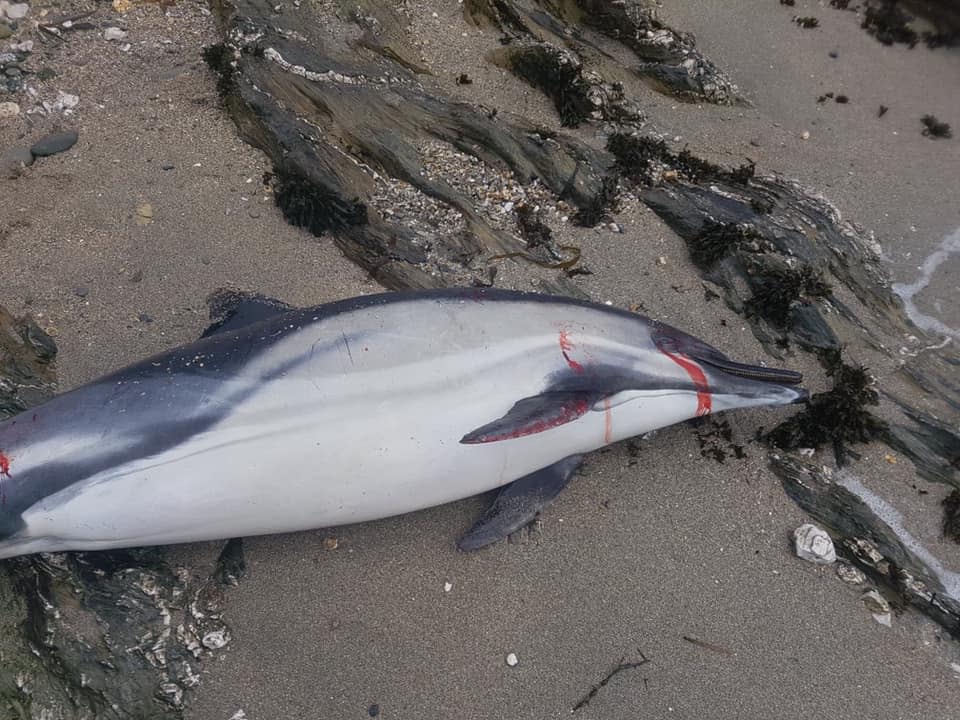Two dolphins discovered dead on popular Cornwall beach

Two dolphins were discovered dead on a popular UK beach after it is believed they became stranded.
Falmouth Coastguard Rescue Team announced they had discovered the mammals on Wednesday, December 4, on Castle Beach in Cornwall.
A post on the coastguard team's Facebook page stated: "Outonashout No. 111/2019 - 04/12/19 - 1113 - Team tasked to a report of a dolphin stranded on Castle Beach, Falmouth.

"On scene, it was found that sadly, two dolphins were deceased.
"We completed the strandings report forms for the Natural History Museum, London and duty of care left with volunteers from the Marine Strandings Network."
Advice has been offered by the British Divers Marine Life Rescue for people who may encounter a stranded whale, dolphin or porpoise that is still alive.
Dan Jarvis, welfare development and field support officer for British Divers Marine Life Rescue, said strandings were a common occurrence on the south-west coast.
Read more from Yahoo News UK:
Joseph McCann guilty: Serial rapist convicted of sex attacks after cocaine-fuelled rampage
Queen's second cousin Lady Tatiana Mountbatten banned from driving for speeding
Homeless man dies in middle of Chelmsford city centre as cold snap grips UK
He told The Packet: “If it's a dead animal, call the Marine Strandings Network on 0345 201 2626.
“Give them a ring and otherwise don't touch it or move it because they can carry diseases. They're mammals so they can pass infections on to us.
“If it's alive, call us [British Divers Marine Life Rescue - 01825 765 546]. We can provide more advice and get trained people there urgently, get volunteers to the area who can deal with it."
People are advised to support the animal in an upright position and dig trenches under the pectoral fins, before covering the animal and dousing it with water.
At the same time, do not let water pass down the blowhole (nostril), on top of the animal's head as it could kill the animal.
The public are also urged to remain quiet and calm, as excessive noise and disturbance will stress the animal further.

 Yahoo News
Yahoo News 